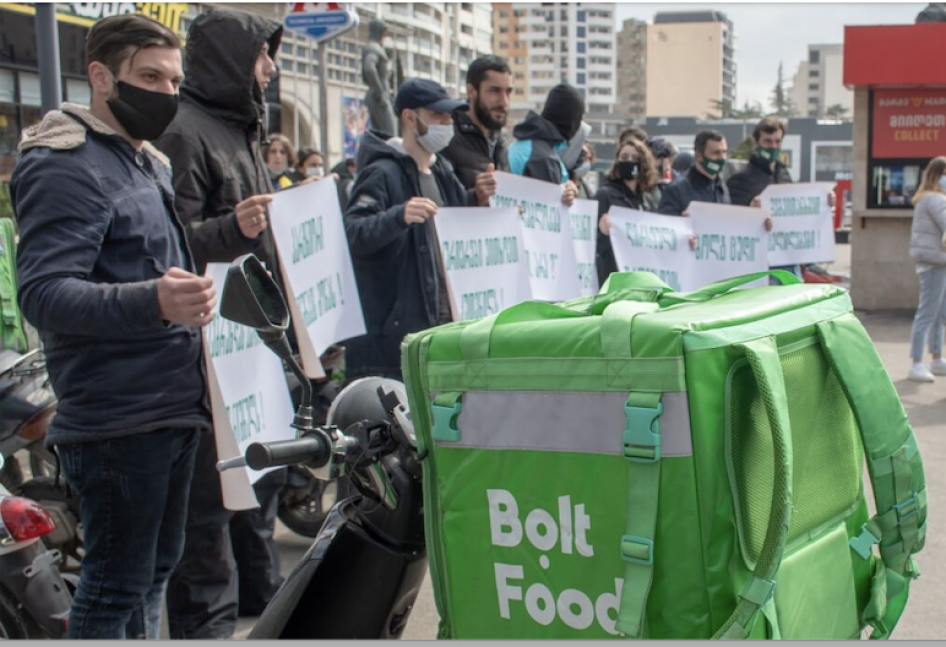The Covid-19 pandemic has spurred a boom in food delivery services in Georgia, where the streets are packed with mopeds carrying branded boxes for companies like Glovo or Bolt Food.
These app-based employers offer a seductive pitch for would-be couriers, especially in a time of high unemployment: flexible hours and plenty of work. But things soured quickly. Since January, in Georgia’s capital Tbilisi, there have been two strikes by couriers working for Glovo and Bolt Food. More than 100 workers turned off their apps in response to a set of policy changes that started in August 2020, which included decreased perorder compensation and performance bonus targets that couriers say are unrealistic.
Human Rights Watch has documented elsewhere how some app-based employers fail to pay living wages, a trend that may now be emerging in Georgia. The strikers also raised a concern that the combination of shrinking perorder fees and ambitious bonus targets impacts workplace safety, an issue Georgian workers have long struggled with, outside the app-based economy.
Glovo’s current terms require completing 180 orders per week to hit the highest bonus tier, meaning couriers must fill an average of 2 orders hourly, working 90 hours per week. Bolt Food requires couriers to deliver 20 orders per day to receive a bonus.
Human Rights Watch has documented links between unrealistic performance targets and poor workplace safety in Georgia’s mines, and connections have been well established in other sectors. In the app-based courier sector, if workers have to chase unrealistic performance targets, they risk working themselves to exhaustion, which risks more accidents.
Indeed, Georgia’s Labor Inspectorate raised this issue when it inspected and fined Glovo for safety violations after a courier traffic accident last year. Unfortunately, instead of addressing safety concerns, Glovo is challenging these findings in court. In a letter to Human Rights Watch, Bolt Food denied its bonus system raises safety issues. Glovo has yet to respond to our request for comment.
Precarious and hazardous working conditions are serious issues in Georgia. But positive steps have been taken in recent years, with the restoration of the Labor Inspectorate and sweeping legislative reforms in 2020. As the app-based economy is expected to grow further, the Labor Inspectorate should prioritize systematic and regular inspections of these companies.
|
Dispatches
App-Based Jobs Emerge as Battleground for Workplace Safety in Georgia
Labor Inspectorate Should Prioritize Regular Inspections of Delivery Companies
Your tax deductible gift can help stop human rights violations and save lives around the world.
Region / Country
Topic
Most Viewed
-
December 11, 2025
Russia’s Systematic Torture of Ukrainian POWs

-
March 31, 2022
Iran: Women Blocked From Entering Stadium

-
December 15, 2025
DR Congo: Fall of Eastern City Puts Civilians at Risk

-
December 15, 2025
Another Blow to Media Freedom in Ethiopia

-
November 12, 2018
“Shall I Feed My Daughter, or Educate Her?”






